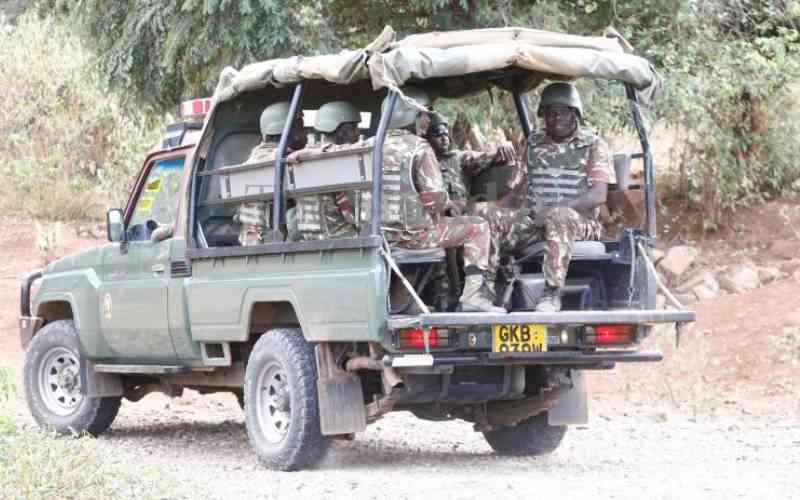×
The Standard e-Paper
Stay Informed, Even Offline

The killing of three policemen at Kainuk last Friday became yet another statistic of officers killed by bandits in the North Rift region.
Hundreds of police officers, many of them young officers fresh from college without bandit combat experience have lost their lives after being thrown into harm's way in places like Kapedo, Suguta, Baringo East, Marakwet East and Turkana South among others.